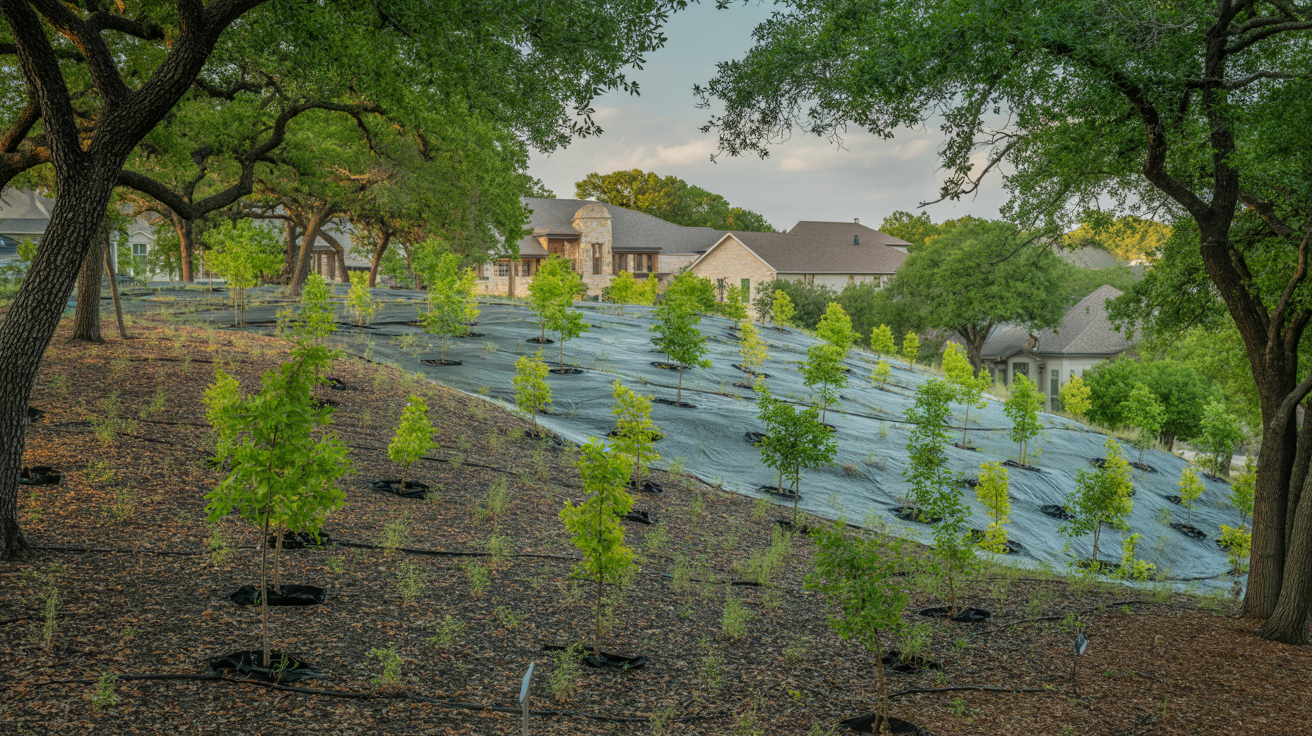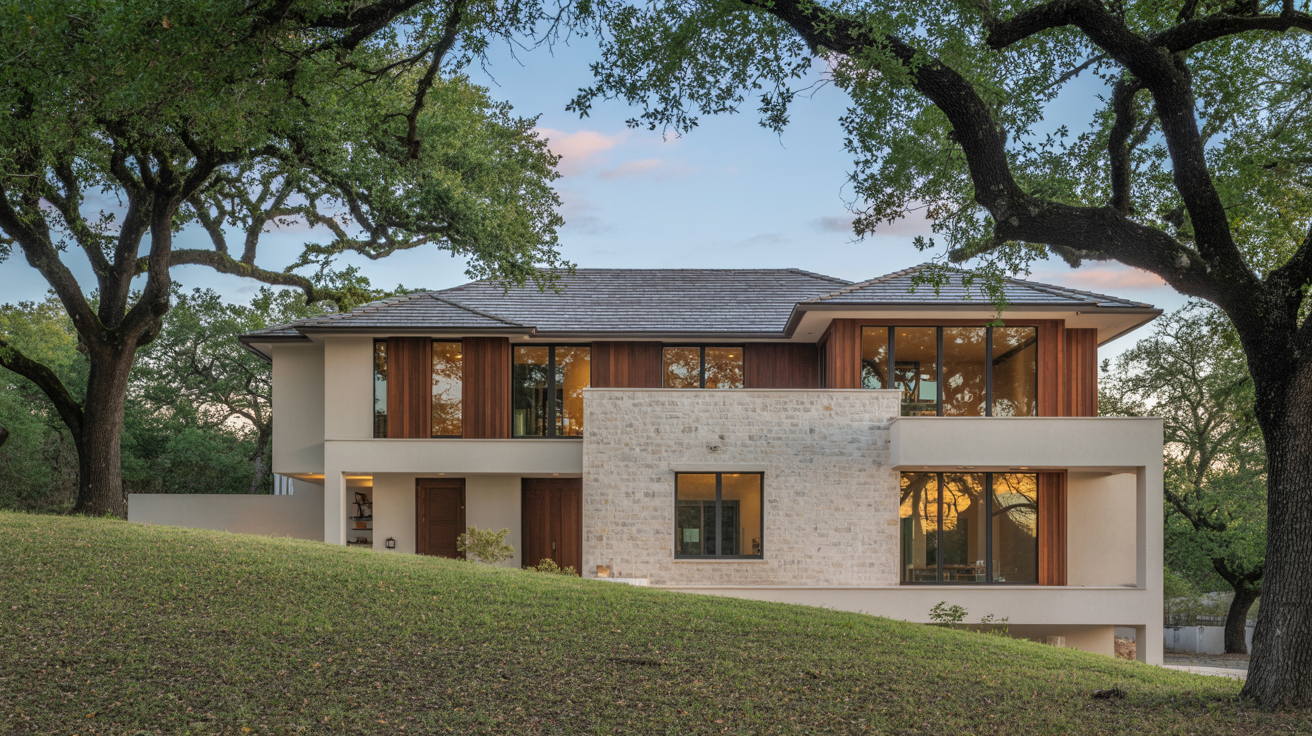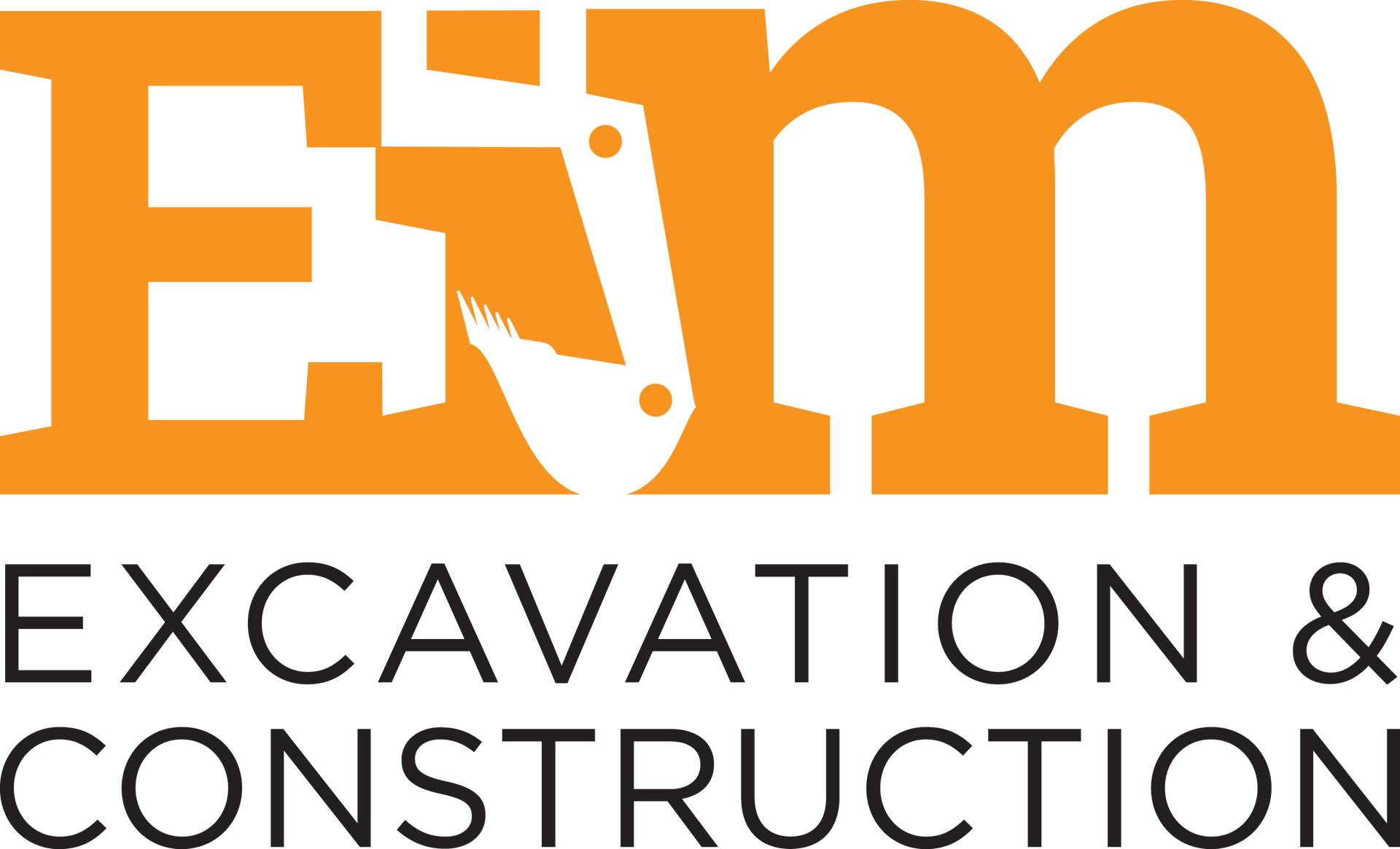Find Top Commercial General Contractors in Austin
Finding the Right Commercial General Contractors Near Austin: A Guide to Project Success
When you're searching for commercial general contractors in Austin, you're looking for more than just someone who can handle heavy machinery and pour concrete. After two decades in construction and founding Earth in Motion back in 2005, I've seen what separates contractors who deliver on their promises from those who leave you wondering where your budget went. The difference comes down to understanding what you really need and knowing how to spot the professionals who can deliver it.
Let me share what I've learned about finding the right commercial contractor for your project. Whether you're planning an office renovation in Austin or need industrial work done across Texas and Colorado, these insights will save you time, money, and headaches.
Understanding What Commercial General Contractors Actually Do
A commercial general contractor serves as your single point of contact for managing every aspect of your construction project. Think of us as the conductor of an orchestra - we coordinate all the moving parts so they work together harmoniously. This includes everything from pulling permits and managing subcontractors to ensuring your project meets local building codes and stays on schedule.
In my experience working across different environments from Colorado's challenging mountain conditions to Texas's unique soil and weather patterns, I've learned that successful commercial contracting requires three core capabilities:
- Project Management Expertise: Coordinating multiple trades, managing timelines, and keeping everyone accountable
- Local Knowledge: Understanding regional building codes, permit processes, and environmental factors
- Quality Control: Ensuring work meets specifications and safety standards throughout the project
At Earth in Motion, we've built our reputation by focusing on these fundamentals while specializing in projects that require innovative solutions for challenging environments. Whether it's dealing with Austin's rocky terrain or Colorado's elevation changes, we understand how local conditions impact project execution.
The Single-Point Accountability Advantage
One of the biggest benefits of working with a qualified commercial general contractor is having one person responsible for your entire project. Instead of juggling relationships with electricians, plumbers, concrete specialists, and other trades, you deal with one company that manages everything.
This approach eliminates the finger-pointing that happens when something goes wrong. If there's a problem, you know exactly who to call. When I take on a project, I'm accountable for the outcome - period. That's the kind of clarity and responsibility you should expect from any contractor you're considering.
Essential Qualifications to Look for in Commercial Contractors
Not all contractors are created equal, and commercial work requires specific qualifications that go beyond basic construction skills. Here's what you should verify before signing any contracts:
Licensing and Insurance Requirements
Every legitimate commercial contractor needs proper licensing for your state and project type. In Texas, contractors working on projects over $2,500 must hold appropriate licenses. Don't assume - verify their license status directly with your state's licensing board.
Insurance is equally critical. Your contractor should carry:
- General Liability Insurance: Protects against property damage and injury claims
- Workers' Compensation: Covers injuries to workers on your project
- Bonding: Provides financial protection if the contractor fails to complete the work
As a Service-Disabled Veteran-Owned Small Business, Earth in Motion maintains comprehensive insurance and bonding because we understand the importance of protecting our clients' investments. This coverage isn't optional - it's essential for professional operation.
Experience with Your Project Type
Commercial construction covers everything from office buildings and retail spaces to industrial facilities and specialized structures. Each type requires different expertise, so you want a contractor with relevant experience.
For example, building a retail space involves different considerations than constructing an industrial warehouse. Retail projects require attention to customer flow, accessibility compliance, and aesthetic details. Industrial projects focus more on structural capacity, equipment integration, and operational efficiency.
Throughout my career, I've worked on diverse projects including custom pond installations, environmental solutions, and commercial facilities across Texas and Colorado. This variety has taught me that successful contractors adapt their approach based on project requirements rather than using a one-size-fits-all method.
Evaluating Project Management Capabilities
Strong project management separates good contractors from great ones. When evaluating potential contractors, pay attention to how they handle the details that keep projects on track.
Communication and Transparency
Your contractor should provide regular updates on project progress, budget status, and any issues that arise. Modern contractors use project management software to give clients real-time access to schedules, budgets, and progress photos.
During my military service, clear communication could mean the difference between mission success and failure. I've carried that same attention to communication into my construction work. Clients deserve to know what's happening with their projects, and transparency builds the trust necessary for successful partnerships.
Subcontractor Management
Most commercial projects require specialized subcontractors for electrical, plumbing, HVAC, and other trades. Your general contractor should have established relationships with reliable subcontractors and the experience to coordinate their work effectively.
Ask potential contractors about their subcontractor network. How long have they worked with their key trades? What's their process for quality control? How do they handle scheduling conflicts between different trades?
Over the years, I've built relationships with skilled professionals across Texas and Colorado who share my commitment to quality work. These partnerships allow me to deliver complex projects efficiently while maintaining the standards my clients expect.
Understanding Commercial Construction Pricing Factors
Commercial construction pricing involves multiple variables that affect your final investment. Rather than focusing solely on the lowest bid, understand what drives costs so you can make informed decisions.
Key Cost Drivers
Several factors significantly impact commercial construction costs:
- Project Size and Complexity: Larger projects benefit from economies of scale, while complex builds require specialized expertise
- Material Selection: Quality materials cost more upfront but often provide better long-term value
- Site Conditions: Rocky soil, poor drainage, or tight access can increase costs
- Timeline Requirements: Rushed schedules often require overtime labor and expedited material delivery
- Local Regulations: Some areas have stricter building codes or more complex permitting processes
Working in environments from Austin's challenging terrain to Colorado's mountain conditions has taught me how site-specific factors affect project costs. What looks straightforward on paper can become complex once you understand the actual conditions.
Value-Based Selection vs. Low-Bid Selection
The cheapest bid isn't always the best value. Contractors who submit extremely low bids often cut corners somewhere - whether it's using inferior materials, rushing the work, or planning to make up the difference through change orders.
Focus on value instead of price alone. Consider factors like:
- Quality of materials and workmanship
- Project timeline and reliability
- Warranty coverage and post-project support
- Contractor reputation and track record
At Earth in Motion, we provide detailed proposals that break down costs and explain our approach. This transparency helps clients understand what they're paying for and why our solutions provide lasting value.
The Importance of Local Expertise and Compliance
Local knowledge makes a huge difference in commercial construction success. Building codes, permit requirements, and environmental factors vary significantly between regions, and experienced local contractors navigate these challenges more efficiently.
Building Code Knowledge
Each jurisdiction has specific building codes and permit requirements. Contractors who regularly work in your area understand these requirements and have established relationships with local officials. This familiarity speeds up the approval process and helps avoid costly delays.
For instance, Austin has specific requirements for stormwater management and environmental protection that affect many commercial projects. Colorado has different challenges related to elevation, snow loads, and seismic considerations. Understanding these regional factors is crucial for project success.
Environmental Considerations
Environmental factors significantly impact construction projects. Soil conditions, drainage patterns, weather patterns, and local ecosystems all influence how projects should be approached.
My experience working in diverse environments has taught me to assess these factors early in the planning process. Whether it's dealing with Austin's clay soil that expands and contracts with moisture changes or Colorado's freeze-thaw cycles that affect foundation design, environmental awareness prevents problems before they start.
Safety Records and Quality Assurance
Construction safety isn't negotiable. Your contractor should have strong safety protocols, proper training programs, and a track record of incident-free work. Ask potential contractors about their safety record and what measures they take to protect workers and your property.
Quality assurance goes hand-in-hand with safety. Contractors who prioritize safety typically also maintain higher quality standards throughout their work. They understand that cutting corners on safety often leads to cutting corners on quality too.
My military background emphasized the importance of following procedures and maintaining standards even under pressure. These habits have served me well in construction, where the temptation to rush or skip steps can lead to serious problems.
Contract Terms and Warranty Considerations
Before signing any contract, understand exactly what's included and what protections you have if problems arise. Pay attention to:
- Scope of Work: Detailed description of what will be done
- Materials Specifications: Quality and source of materials to be used
- Timeline: Project milestones and completion date
- Change Order Process: How modifications will be handled
- Warranty Coverage: What's covered and for how long
- Dispute Resolution: Process for handling disagreements
A reputable contractor will provide clear, detailed contracts that protect both parties. Be wary of contractors who pressure you to sign quickly or refuse to explain contract terms thoroughly.
Making Your Final Selection Decision
After evaluating multiple contractors, your decision should be based on a combination of factors rather than any single criterion. Consider the contractor's experience with your project type, their communication style, local reputation, and overall value proposition.
Trust your instincts too. Construction projects involve close working relationships over extended periods. Choose a contractor you feel comfortable communicating with and who demonstrates genuine interest in your project's success.
At Earth in Motion, we've built our business on delivering innovative solutions that solve real problems for our clients. Whether it's creating custom ponds that enhance commercial properties or developing construction approaches that work with challenging environmental conditions, we focus on results that provide lasting value.
The right contractor becomes a partner in your project's success, not just someone who shows up to do the work. Look for contractors who ask thoughtful questions, provide detailed explanations, and demonstrate genuine commitment to your project outcomes.
When you're ready to move forward with your commercial construction project, remember that finding qualified commercial general contractors near me requires careful evaluation of experience, qualifications, and alignment with your specific needs and values.
Frequently Asked Questions About Commercial General Contractors
How do I know if a commercial general contractor has the right experience for my specific project type?
Look for contractors who can demonstrate relevant experience through their portfolio and past project examples. At Earth in Motion, I've worked on diverse commercial projects across Texas and Colorado, from retail spaces to industrial facilities. Each project type requires different expertise - retail construction focuses on customer flow and aesthetics, while industrial projects emphasize structural capacity and operational efficiency. Ask to see examples of similar projects, understand their approach to your specific challenges, and verify they have experience with local conditions like Austin's rocky terrain or Colorado's elevation changes that could impact your build.
What factors determine the cost of a commercial construction project?
Commercial construction costs depend on several key variables including project size and complexity, material selection, site conditions, timeline requirements, and local regulations. Larger projects often benefit from economies of scale, while complex builds requiring specialized solutions cost more. Site-specific factors like soil conditions, drainage issues, or tight access significantly impact pricing. Timeline pressures requiring overtime labor or expedited materials also increase costs. At Earth in Motion, I provide detailed proposals breaking down these cost drivers so clients understand exactly what influences their investment and can make informed decisions about materials, timeline, and project scope.
How important is local expertise when choosing a commercial general contractor?
Local expertise is crucial for project success because building codes, permit requirements, and environmental factors vary significantly between regions. Working across Texas and Colorado has taught me how regional differences impact construction approaches. Austin has specific stormwater management requirements and challenging clay soil conditions, while Colorado projects must account for elevation changes, snow loads, and freeze-thaw cycles. Local contractors understand these nuances, have established relationships with permitting officials, and know how to navigate regional challenges efficiently. This knowledge prevents costly delays and ensures your project meets all local compliance requirements from the start.
What should I expect in terms of communication and project management from my commercial contractor?
Professional commercial contractors should provide regular updates on project progress, budget status, and any issues that arise. At Earth in Motion, I maintain transparent communication throughout every project because clients deserve to know what's happening with their investment. Expect detailed progress reports, real-time access to project information, and proactive communication about any challenges or changes. Your contractor should coordinate all subcontractors, manage timelines, and serve as your single point of contact. This eliminates confusion and ensures accountability - when something needs attention, you know exactly who to contact for resolution.
What warranties and protections should a commercial general contractor provide?
Reputable commercial contractors should offer clear warranties on their workmanship and have comprehensive insurance coverage including general liability, workers' compensation, and bonding. At Earth in Motion, as a Service-Disabled Veteran-Owned Small Business, I maintain full insurance and bonding because protecting client investments is essential. Your contract should specify warranty coverage duration, what's included, and the process for addressing any issues. Additionally, ensure your contractor has proper state licensing - in Texas, contractors working on projects over $2,500 must hold appropriate licenses. Verify licensing status directly with your state's licensing board and request proof of current insurance certificates before signing any agreements.



